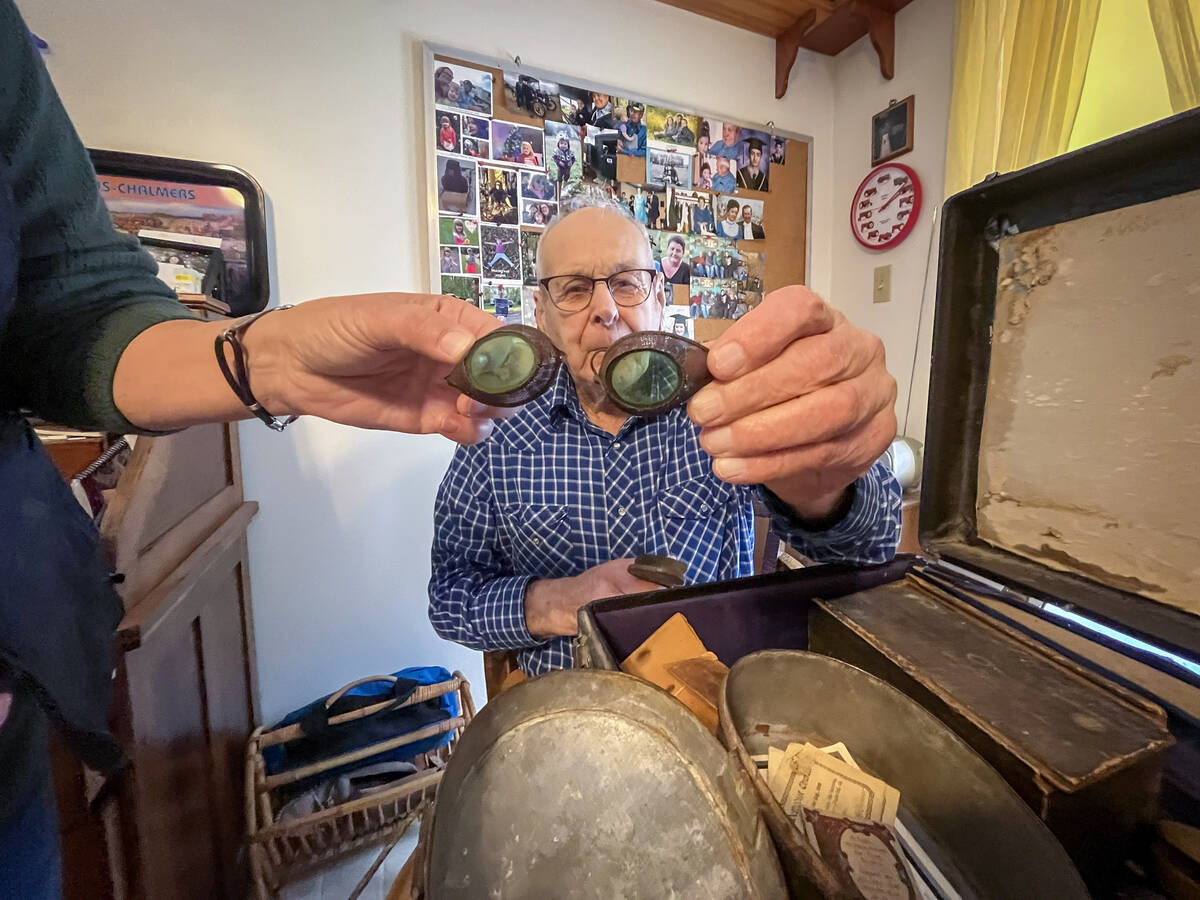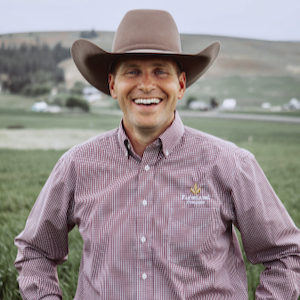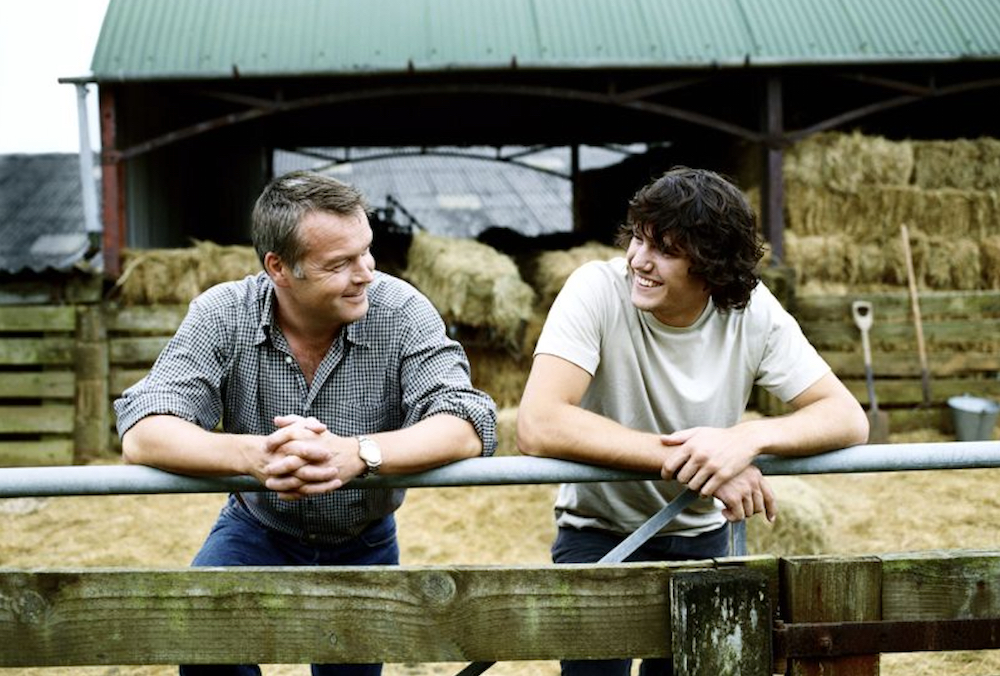Professional farm management is serious business south of the border. Now, based on today’s trendlines, most insiders are predicting it’s only going to grow and spread.
Will it grow in Canada too? Country Guide will look into that question in our next issue, but it’s worth pointing out that the share of farmland that’s rented is roughly equal north and south of the border (40 per cent in the U.S., 43 per cent in Canada). As well, the average age of farmers is soaring in both countries, as is the price of farmland.
At Spokane, Wash., Tim Cobb, owner of Farmland Company, says that the marketplace keeps driving more farms to his door. Already, his team is farming 175,000 acres on behalf of nearly 100 clients, and, says Cobb, who is both an accredited farm manager (AFM) and a real estate broker (see why he does both at ‘American Society of Farm Managers and Rural Appraisers’ further down), more growth is in the cards.
Read Also

The why and how of preserving farm family history
Part two of a series explaining why and how to preserve farm family history.
“More landowners and families are looking for ways to preserve the farm legacy while continuing to collect a profit from the farm,” says Cobb.
Professional farm managers
On the surface, it might not sound that different from a standard land rental. However, it’s an important step up the ladder. In simple terms, Cobb actually rents the land out on behalf of the owner. He arranges a tenant to farm his client’s ground, but he also makes sure the tenant farms the ground the way Cobb and the landlord want it farmed.
That’s the difference. Cobb doesn’t take over the farming. He takes over the decision-making, which only begins with matching his client’s goals with a tenant who will uphold their values.

“Our job is to maintain the performance and profitability of the farm on their (the clients’) behalf,” Cobb says.
It’s another factor that’s driving the trend. Cobbs says that as agriculture gets more complex, landowners find they rapidly lose touch with the agronomics as well as the economics of even the most basic cropping decisions.
They also lose touch with the global marketplace. What crops would be most profitable for their farm? They simply don’t know.
It’s little surprise then that Corey Prins, co-owner of Northwestern Farm Management Co. in Minnesota, says most of his job is relationship management.
They may not know all the details of modern farming, but farm families do know their core values, Prins says, and they want to stay true to them. They want to know the land is being treated right, for instance, even if they don’t quite know how to do that.
“No other industry is so closely linked with the land, family, the simple joy of planting and harvesting or leaving a legacy,” says Prins. “Agriculture is unique, and with it comes the responsibility to align the values of a landowner with a tenant, all while maintaining production and profitability.”
Like Cobb, the cost of hiring Prins as a professional farm manager is based on a fee structure that varies by farm size and lease type, although compensation is generally based on a percentage of the gross farm revenue.
It isn’t cheap. The typical cost is five to 10 per cent of gross farm receipts.
Prins and his staff of 10 manage more than 100,000 acres across four states. As an advocate for his clients, Prins notes he’s also responsible for matching their risk tolerance and land management preferences with tenants who will live up to them. For some clients, it’s simple. They just want him to maximize revenue but others might want the farm to go organic, for instance, or they might want to work with a young tenant to help the next generation get their start.

“The challenge can be setting the right goals and expectations for landowners, because in some cases, they may not understand farming or current market situations,” says Prins.
He also needs deep knowledge of land values and commodity markets in order to advise client landowners.
Most of the farmland leases Prins and his team manage are cash rent. Others might involve custom farm work, sharecropping or flex terms where the landowners agrees to a base cash-rent rate but gets a bonus if yields exceed a set amount.
Matching landowners with tenants
Risk management is a big focus. For landlords who depend on that annual income, a straight cash lease makes the most sense, but for those who like to farm from a distance, sharecropping is a popular option for sharing the risk and reward with a tenant.
Cobb himself works mainly with sharecrop agreements that let him be responsible for crop and soil management.
“Transparency is key to these agreements,” he says simply.
On a typical small grain farm, Cobb is also responsible for marketing the grain on behalf of the landowner, holding a portion of the profit to invest in farm inputs the following year and cutting an annual income cheque.
Also not surprisingly, both Cobb and Prins focus on making the paperwork as seamless as possible for clients, including managing crop insurance, farm agency registrations and conservation programs.
“We also hold power of attorney to sign for government programs on behalf of our clients,” says Cobb.
Need a peacemaker?
When does it make sense to hire a farm manager? Prins has his answer ready. He says it’s anyone who rents out farmland and wants to maximize their revenue or preserve production capabilities.
“Or,” he adds, “anyone who doesn’t like to negotiate,” explaining that in many cases, landowners know they don’t have the insider knowledge needed to negotiate the best leases, and that their negotiating ability is only going to to fall further the longer they’re away from farming.
When it comes to managing negotiations, Cobb says he’s also been called in when landowners don’t want to have tough conversations with tenants. “We can be a neutral third party and through regular inspections, hold tenants accountable for their practices,” explains Cobb.
Those negotiating and relationship management skills come in handy for family dynamics too. If the farm is transferred to non-farming siblings, there has to be a way to give everyone comfort that the farm is being managed for the entire family.
Or it can get even more complicated. “As farmland asset values increase, so can the desire for family members to cash out of the family farm,” adds Prins. “Our job is to be an independent third-party voice amongst conflicted families. We have the opportunity to be the peacemaker and help them maintain the farm, and that’s always rewarding.”
A new buyer on the block
Sometimes, too, the client has never farmed and has no intention of ever actively farming in the future. Cobb, for instance, has a mix of institutional clients, including charities who have received farms as donations.
Or, the person knocking at his door may be an investor, Prins says. “Farmland has been a well-kept secret, but astute investors are realizing agricultural land holds its value, offers opportunities and answers to food and energy solutions.”
They come to Prins with a varying range of knowledge and expectations. Some conduct thorough research on farm practices and market prices. Others don’t, but they all need advice they can trust.
Actually, that’s not so different from his family clients, says Cobb. “At the end of the day, most landowners want to see their land taken care of and generate as much production as possible, and we’re happy to help.”
American Society of Farm Managers and Rural Appraisers
Across the U.S., more than 2,100 rural property professionals belong to the American Society of Farm Managers and Rural Appraisers (ASFMRA), a professional association for rural property land experts that spans 31 state chapters and has a handful of Canadian members in Alberta and Ontario.
The society’s designations include accredited farm manager (AFM), accredited agricultural consultant, accredited rural appraiser and real property review appraiser. All require secondary level education, years of professional service, training and continuous education.
What is the role of an Accredited Farm Manager?
Leasing services
AFMs carefully manage landowner and tenant relationships and match appropriate tenants with landowners. Values and preferred production systems are aligned between clients and tenants to ensure the preservation and productivity of each farm. A mix of annual lease agreements are used (cash rent, sharecropping, flex lease agreements, etc.) to manage the risk tolerance of owners.
Farmland inspection and monitoring
AFMs conduct regular inspections of properties to ensure land is maintained and conditions are ideal, like properly functioning tile drainage in the spring. Inspections may include interviews with tenants to make sure any stipulated tillage or production practices are being followed, fields are seeded and weeds are controlled. Harvests are closely monitored to ensure timeliness and accountability of yields. AFMs also work closely with tenants, offering agronomic and cropping system advice.
Depending on the farm, AFMs may also manage the rental of farm houses, sheds, outbuildings and grain bins.
Client reporting
Written reports are provided to landowners that include inspection results, photos or videos, and comments from the tenants or AFM. These reports often include weather and market reports to manage landowner expectations. Depending on the lease agreement or client expectations, report frequency ranges from once a year to seasonal or monthly.
Farm business and financial management
All farm and production datapoints are closely monitored and reported to provide landowners with as much information about their farms as possible. AFMs also manage all the paperwork required, including lease agreements, marketing any crops, crop insurance, farm service agencies, conservation programs and holding any necessary finances in trust to pay for crop inputs or custom work.
Farm appraisal and realtor services
AFMs are also registered realtors and many farm management companies offer on-staff appraisers. The combination of these roles and services means AFMs can provide landowner clients with the latest farmland valuations and access to extensive networks of available buyers and tenants.
















